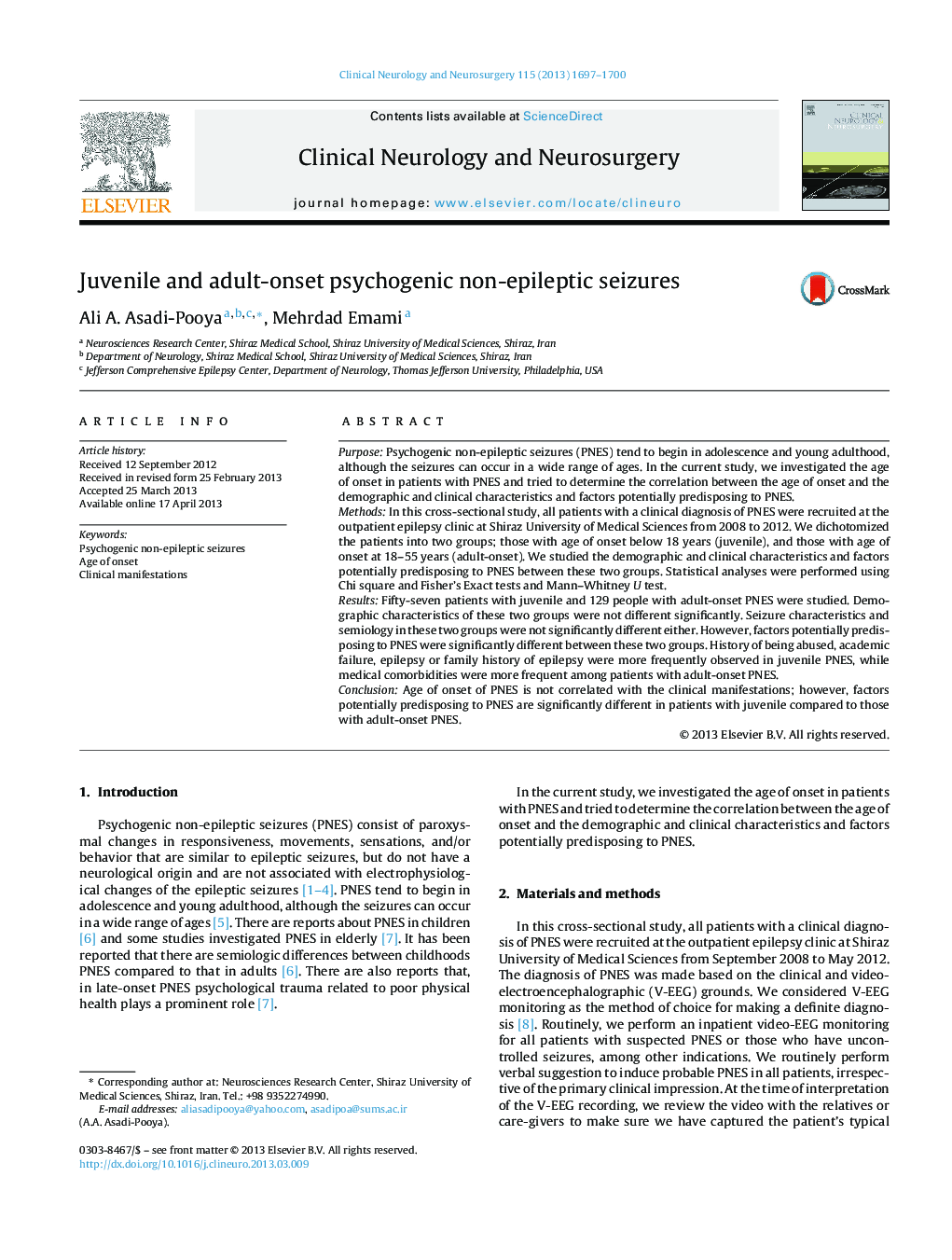| Article ID | Journal | Published Year | Pages | File Type |
|---|---|---|---|---|
| 3040485 | Clinical Neurology and Neurosurgery | 2013 | 4 Pages |
PurposePsychogenic non-epileptic seizures (PNES) tend to begin in adolescence and young adulthood, although the seizures can occur in a wide range of ages. In the current study, we investigated the age of onset in patients with PNES and tried to determine the correlation between the age of onset and the demographic and clinical characteristics and factors potentially predisposing to PNES.MethodsIn this cross-sectional study, all patients with a clinical diagnosis of PNES were recruited at the outpatient epilepsy clinic at Shiraz University of Medical Sciences from 2008 to 2012. We dichotomized the patients into two groups; those with age of onset below 18 years (juvenile), and those with age of onset at 18–55 years (adult-onset). We studied the demographic and clinical characteristics and factors potentially predisposing to PNES between these two groups. Statistical analyses were performed using Chi square and Fisher's Exact tests and Mann–Whitney U test.ResultsFifty-seven patients with juvenile and 129 people with adult-onset PNES were studied. Demographic characteristics of these two groups were not different significantly. Seizure characteristics and semiology in these two groups were not significantly different either. However, factors potentially predisposing to PNES were significantly different between these two groups. History of being abused, academic failure, epilepsy or family history of epilepsy were more frequently observed in juvenile PNES, while medical comorbidities were more frequent among patients with adult-onset PNES.ConclusionAge of onset of PNES is not correlated with the clinical manifestations; however, factors potentially predisposing to PNES are significantly different in patients with juvenile compared to those with adult-onset PNES.
